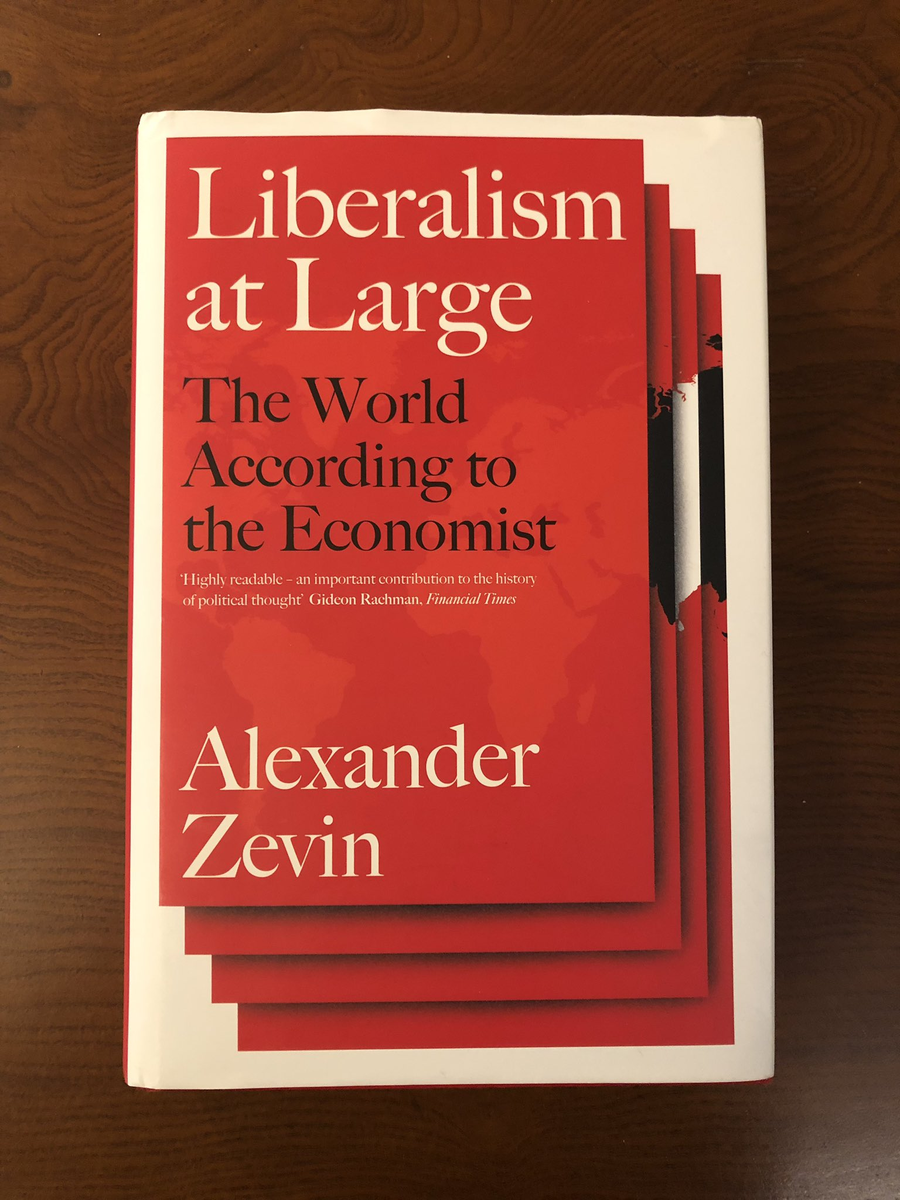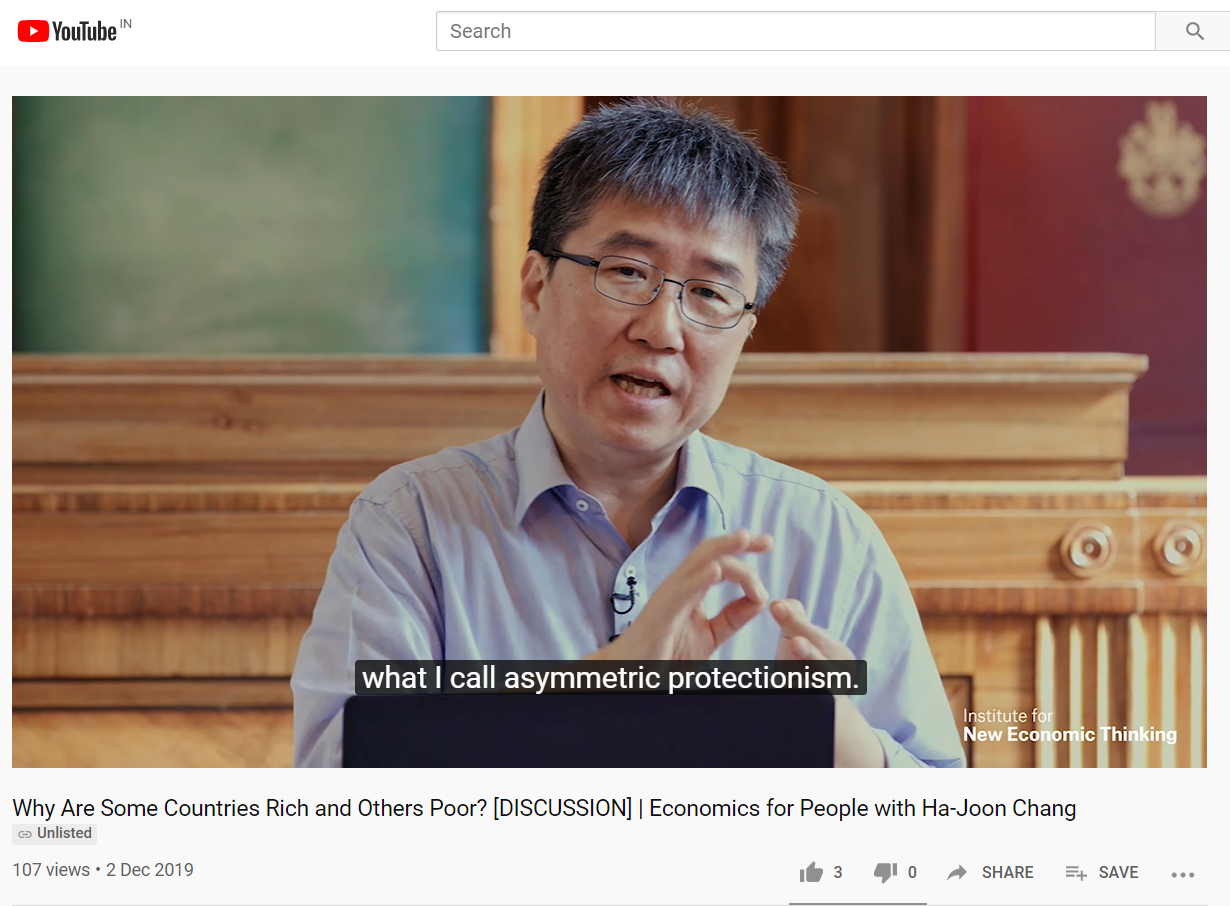Bob Rowthorn’s Godley-Tobin lecture presented at the Eastern Economic Association, New York, on 1 March 2019 is not available as a paper at Review Of Keynesian Economics.
You can view the video here.
There’s a new episode, of the Citations Needed podcast titled Episode 98: The Refined Sociopathy of The Economist and featuring Alexander Zevin on his book Liberalism At Large—The World According To The Economist.
The episode is about The Economist and also about the word “liberalism”.
From the transcript:
Alexander Zevin: One of the things that book tries to do is to bring the history of imperialism into the history of liberalism, and usually they’re not spoken about together. In fact, in many histories of liberalism you’ll get the impression that liberals were anti-imperialists, they were against the empire, but The Economist, and what I argue is the dominant strand of liberalism, isn’t. It’s consistently pro-imperial from the 1850s at the time of the Crimean War, and the Opium War in China, and the Indian mutiny, and many other conflicts all the way through to the present.

picture by Alexander Zevin
Excellent discussion of the connection of liberalism and imperialism.
Paul Krugman’s article, Trump The Intimidator Fails Again, published Jan 6th in The New York Times a few days ago, shows how he is a rank imperialist.
Consider the following quote:
America did many terrible things during its reign as global hegemon. But we clearly stood for global rule of law, for a system that imposed common rules on everyone, ourselves included. The United States may have been the dominant partner in alliances like NATO and bodies like the World Trade Organization, but we always tried to behave as no more than first among equals.
“But”? 🤯
He’s openly confessing that the United States imposes an economic order on all countries but tries to justify it as some good thing.
It’s important for Post-Keynesians to highlight how imperialism works. To not start economics with imperialism is a huge disservice to the subject. The “liberal international order” is hugely constraining to poorer countries and instead of achieving economic convergence, leads to polarisation.
Imperialism works by controlling the narrative and getting countries to adopt neoliberal policies. Some countries agree to it while others are arm-twisted to do so. If they still don’t obey, the US government tries to intervene in the countries’ democratic process, such as by funding their opposition, and/or rigging elections. Or they face sanctions and isolation. In the extreme case, the US uses military to achieve its objectives—providing new markets for the US producers.
The role of economists such as Paul Krugman is to promote economic propaganda, to deceive the world into thinking that neoliberal policies achieve the best outcomes.
Back to the quote, notice the extreme language manipulation. Paul Krugman calls himself a “liberal” and calls a coerced system “rule of law”. Double-speak! No first among equals, as the rules of global trade are unfair, benefiting advanced countries, who have themselves enriched themselves with different rules such as import tariffs, quotas and direct imperialism, for example, the British occupation of India. Moreover, even currently, the rules of international trade are highly protectionist in many ways.
Imperialism and free-trade is the most important reason for why some countries are rich and others poor. Because of the principle of circular and cumulative causation, they rarely catch up. Poor countries aren’t “underdeveloped”—it’s a misleading word—they’re exploited. Hence there’s a need for global rules to allow for convergence of fortunes of nations. The current rules of globalisation lead to polarisation and welfare of a few, not the many.
I recently recommended Ha-Joon Chang’s lecture series. It’s a long one—13 lectures followed by discussions.
In the discussion part of the talk Why Are Some Countries Rich And Others Poor, Ha-Joon Chang calls for asymmetric protectionism. The global rules are in favour of poor countries and not the rich ones.
